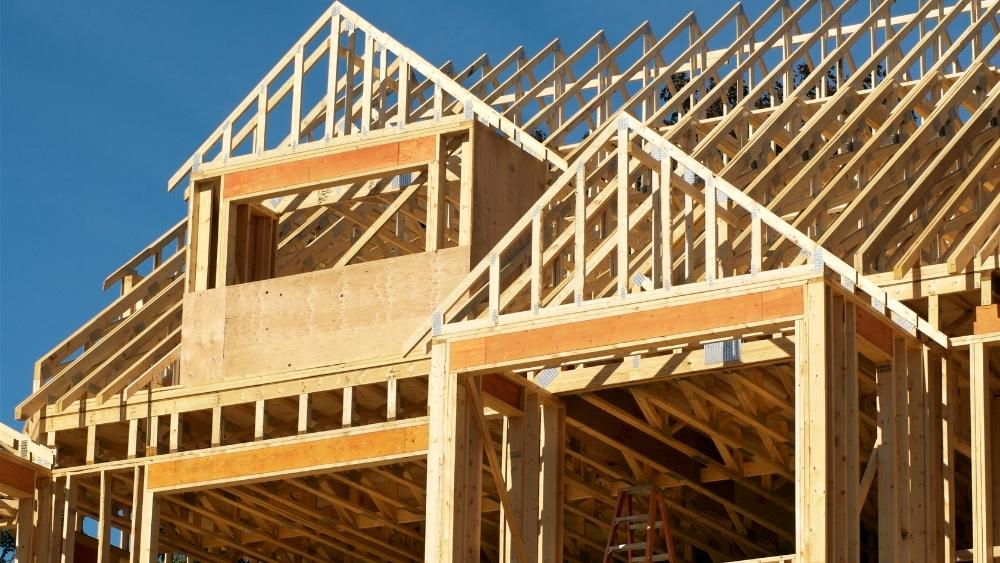New construction offers advantages over buying existing homes, including customization, modern amenities, and often competitive pricing. With these advantages comes a process that is distinct from buying a resale property.
If you aren’t thorough, however, these advantages can be lost. Fear not! By avoiding these big mistakes for building new homes, you’ll make the right decision at each step of the buying and building process to end up with the house you want.
Assuming negotiation isn't possible
Just like buying a traditional house, prices are often negotiable. This extends beyond merely the base price, as many builders are even more flexible on fees and other small-ticket items.
The builder may say no, but, as with any negotiation, a willingness to give and take can go a long way. Regardless of the outcome, you won’t know if you don’t ask.
Beyond the cost, it is almost always in your power to make special requests for amenities, design features, or other extras that aren’t directly offered by the builder for your chosen plan. Take advantage of pre-build meetings to ask for what you want, as doing so requires more in-depth communication than just going with standard options.
Want the washer-dryer of your dreams? Tell the builder you want the high-end model you’ve bought installed instead of their provided ones, and they will likely be willing to do so (for an increased cost). Conversely, if you prefer an open deck, you can ask them to omit a cover that would otherwise be installed as standard.
Failing to budget for additional expenses
Even if you don’t opt for unincluded features as mentioned above, you could very well be attracted to the provided upgrades for your chosen plan. Nicer appliances and stylish finishes can increase the resale value of a home, or may just reflect the buyer’s preference for creature comforts.
Either way, don’t assume you will skimp on amenities to reduce costs without first previewing what you can get with your plan and adding flexible spending accordingly to your budget. Furthermore, it’s equally important to consider what isn’t offered as standard. Remember to think of what you’ll need to buy on your own to make your space liveable.
Not understanding the fine print for securing a loan
It’s common for large builders to offer preferred lenders to buyers seeking to mortgage their home. Usually, there is some kind of incentive, such as reduced rates. It’s important to understand what the terms and advantages of using that company are.
Shopping around for outside lenders can give you a basis for comparison. This basis can in turn allow for negotiations with the provided or in-house option. Or, you may find a cheaper alternative instead.
Often, the preferred lender will have decent rates and terms that make them a good and convenient choice. But if lower rates from an external mortgage company better outright incentives in the long run, you’ll be glad you rate shopped.
Forgetting to read the builder’s warranty
New build homes come with two types of warranties from a builder: implied and express. Implied warranties account for workmanship issues that impact safety, livability, or habitability. They usually apply for ten years and are worded vaguely in order to be non-specific.
Express warranties more clearly state issues that the builder will be responsible for fixing. The terms of raising a claim are set out here. The length of the warranty varies depending on the builder. Additionally, it spells out checkpoints and final cutoff times for different parts of the build.
Read the fine print to prevent any headaches arising from disputes or mistakes on the builder’s end. It’s especially important to know where you’re covered by the express warranty, as they can differ greatly depending on which builder wrote them. Some even ask a buyer to forgo the rights an implied warranty would provide.
Being unrealistic about timelines
It may sound obvious, but it takes time to build a house. It’s important to make sure you are informed by the builder on how long it should take to build and complete your desired home.
A ballpark estimate for a standard project is seven to eight months to completion, according to data from the U.S. Census Bureau. Bear in mind that while it may take less time than that, it can take longer than expected if materials shortages or other unexpected challenges occur during the months of construction.
While realistic expectations and patience are necessary, make sure you question the builder if they are diverging significantly from the expected timeline.
Summary
There are enticing perks to buying and building a new home to your specifications. Avoid potential pitfalls by doing research ahead of time and staying vigilant to the numerous contracts, warranties, and fees that emerge throughout the process. Make sure everything is done just right before you close, sign, and occupy your brand new home.
Ready to get the home of your dreams built? Then check out all that Brunswick Crossing has to offer. With a variety of models and resort-style amenities, your dream home awaits. Take a virtual tour today and explore the plethora of opportunities right at your doorstep.




